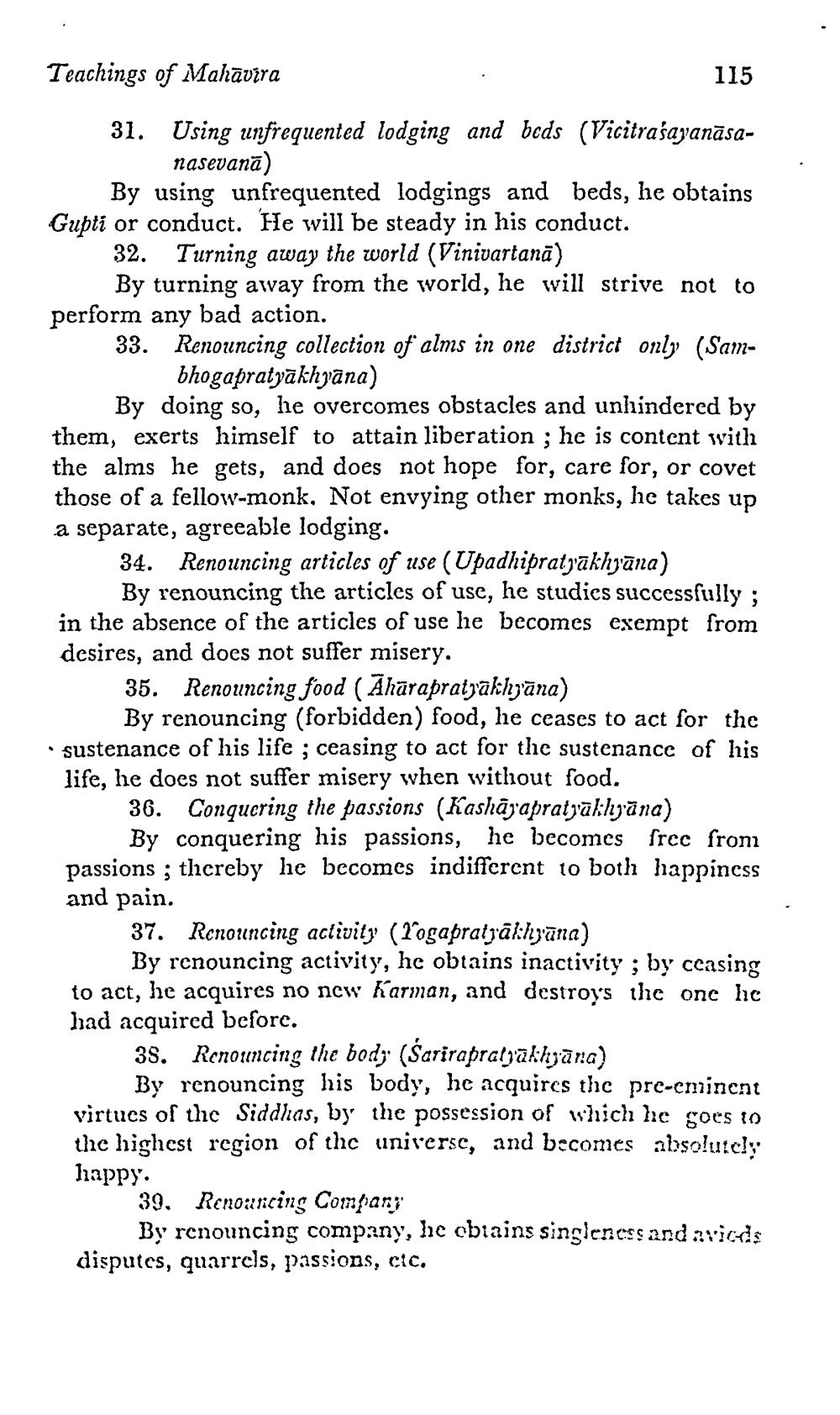________________
Teachings of Mahavira
115 31. Using unfrequented lodging and eds (Vicitraśayanāsa
nasevanā) By using unfrequented lodgings and beds, he obtains Gupti or conduct. He will be steady in his conduct.
32. Turning away the world (Vinivartana)
By turning away from the world, he will strive not to perform any bad action. 33. Renouncing collection of alms in one district only (Sam
bhogapratyakhyana) By doing so, he overcomes obstacles and unhindered by them, exerts himself to attain liberation; he is content with the alms he gets, and does not hope for, care for, or covet those of a fellow-monk, Not envying other monks, he takes up a separate, agreeable lodging.
34. Renouncing articles of use (Upadhipratyakhyāna)
By renouncing the articles of use, he studies successfully; in the absence of the articles of use he becomes exempt from desires, and does not suffer misery.
35. Renouncing food ( Ahārapratyakhyāna)
By renouncing (forbidden) food, he ceases to act for the • sustenance of his life ; ceasing to act for the sustenance of his life, he does not suffer misery when without food.
36. Conquering the passions (Kashāyapratjākhyāna)
By conquering his passions, he becomes free fronı passions ; thereby he becomes indifferent to both happiness and pain.
37. Renouncing activity (logapratjākhyāna)
By renouncing activity, he obtains inactivity ; by ccasing to act, he acquires no new Karman, and destroy's the one hc had acquired before.
35. Renouncing the bod; (Šarirapraljakhjāra)
By renouncing his body, he acquires the pre-eminent virtues of the Siddhas, by the possession of which he goes to the highest region of the universe, and becomes absolutc!; happy.
39. Renouncing Company
By renouncing company, he obiains singleness andavicds disputes, quarrels, passions, cic.




